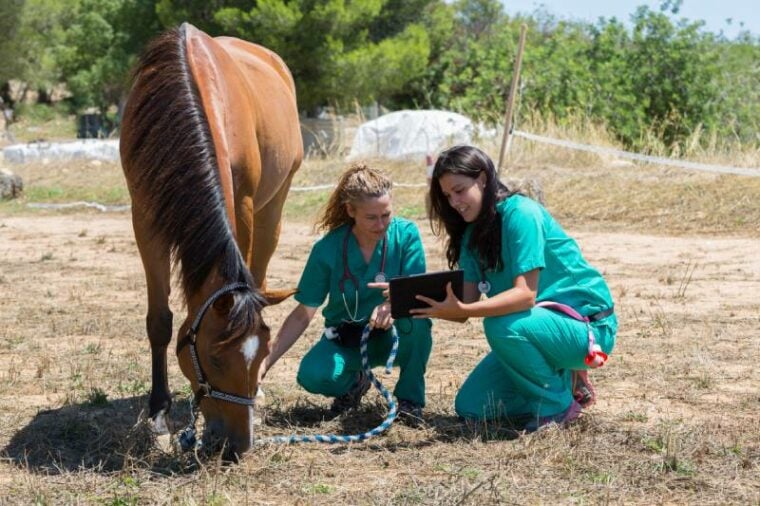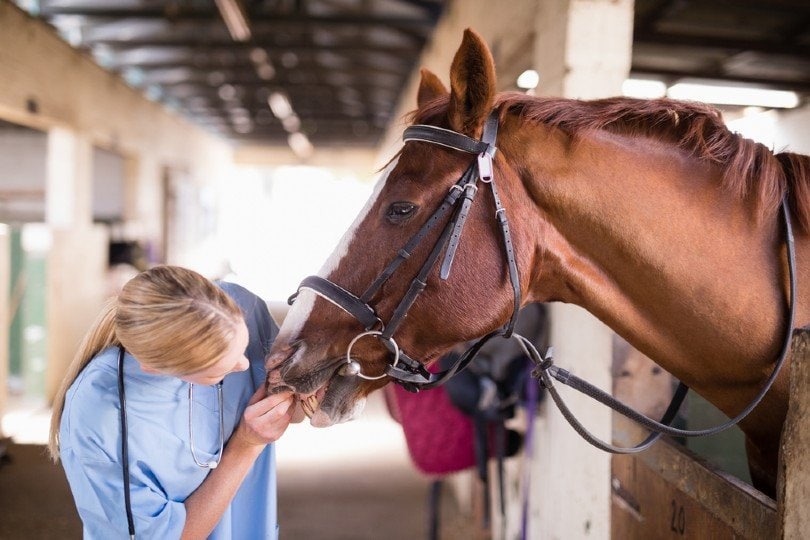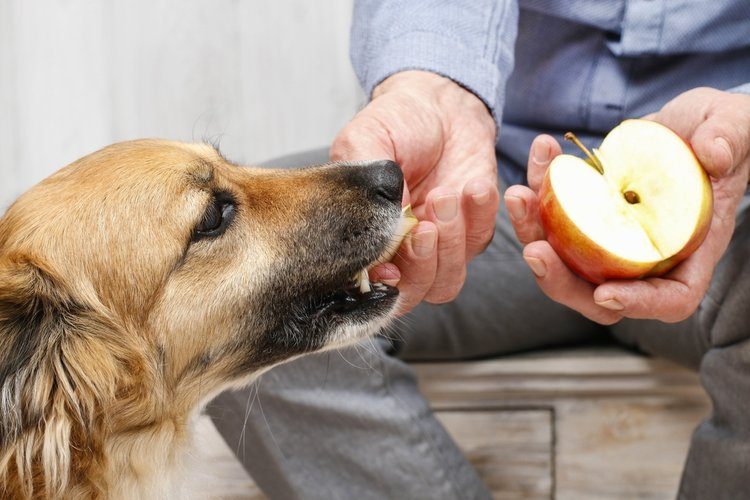
Influenza outbreaks in horses are very serious, and it’s one of the biggest dangers facing horse owners. Equine influenza is highly contagious so getting your horse vaccinated is essential for their health.
You might be wondering if vaccinated horses can catch the harmful disease. Unfortunately, the short answer is yes, they can. Keep reading while we look at what the vaccination does and what happens if a vaccinated horse catches the flu so you can be better informed.
Do Vaccinated Horses Catch the Flu?
Unfortunately, vaccinated horses can still catch the flu, but it’s much less likely, and the effects of the virus should be much less severe. Your horse is also more likely to return to health sooner than an unvaccinated horse. A horse with a lapsed vaccination is at greater risk of catching the virus. Horses in high-risk areas should be vaccinated every 6 months.

What Is Equine Influenza?
Equine influenza is a respiratory disease that affects horses. It spreads quickly (usually by inhalation), and horses can start showing signs of the virus 3–5 days after exposure to the virus.
The strains of medical concern vary by geographic regions. The World Organization for Animal Health (formerly called “OIE”) monitors equine influenza virus strains associated with disease outbreaks and bases annual vaccine strain recommendations on their findings.
How Do Horses Catch Equine Influenza?
Horses catch equine influenza from other horses, and it’s extremely common in horses 1–5 years of age. Racetracks are hotspots for the disease because the horses come from all over to a common area.
What Are the Signs of Equine Influenza?
What Is the Best Treatment for Equine Influenza?
Unfortunately, there is currently no treatment for equine influenza, and the best way to protect your horse is to get them vaccinated. Vaccinations make it less likely that your horse will catch the virus, and recovery will be faster if they do get exposed to the virus.
The current recommendation is a vaccination booster per year for horses in low-risk areas and a booster vaccination every 6 months in high-risk areas. Fédération Equestre Internationale (FEI) and United States Equestrian Federation (USEF) sponsored events require documentation of vaccination against EIV within 6 months of entering event grounds.

Summary
We highly recommend getting your pet vaccinated frequently to help keep your horse healthy. A vaccination every 6 months is the best protection in high-risk areas. Vaccinations might be mandatory for horses participating in events.
Related Reads:
- What is Equine Strangles? Diagnosis, Treatment & Prevention
- Equine Influenza Vaccinations: Complete Guide
- What Is Equiflunet?
Featured Image Credit: 135pixels, Shutterstock









